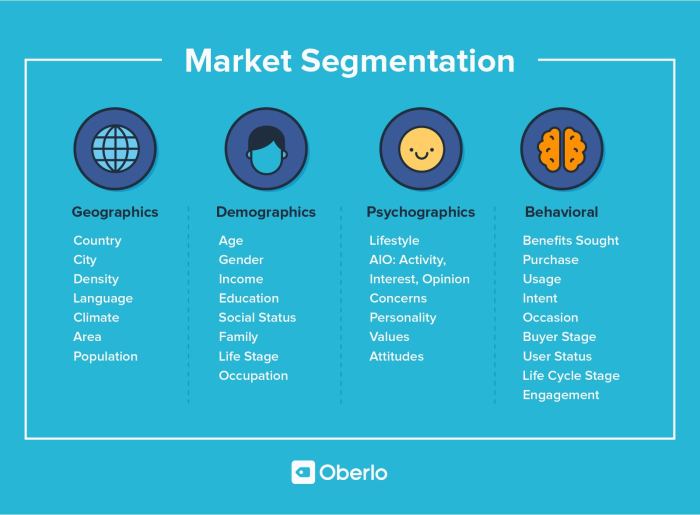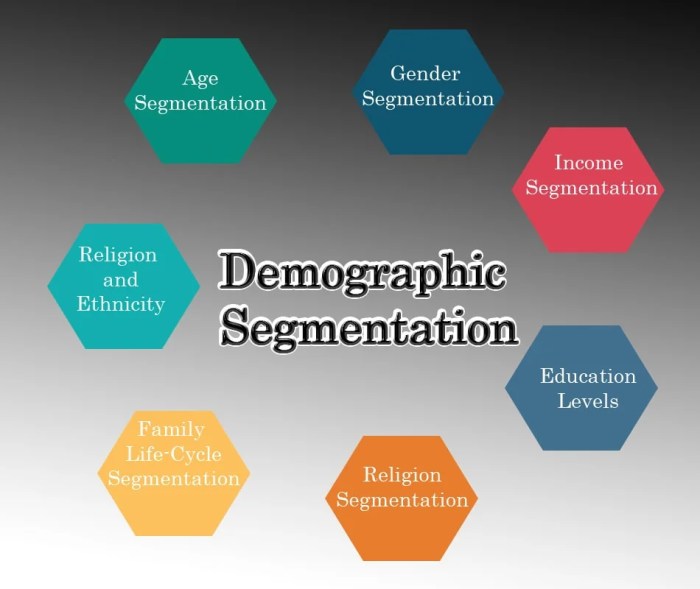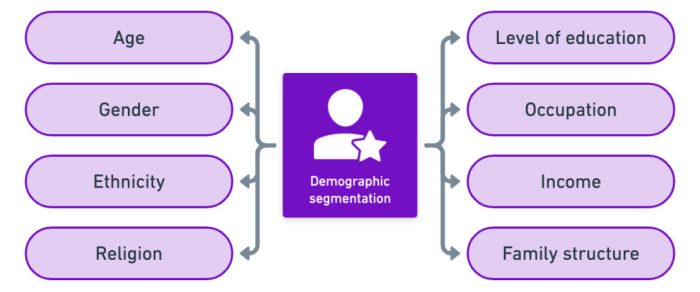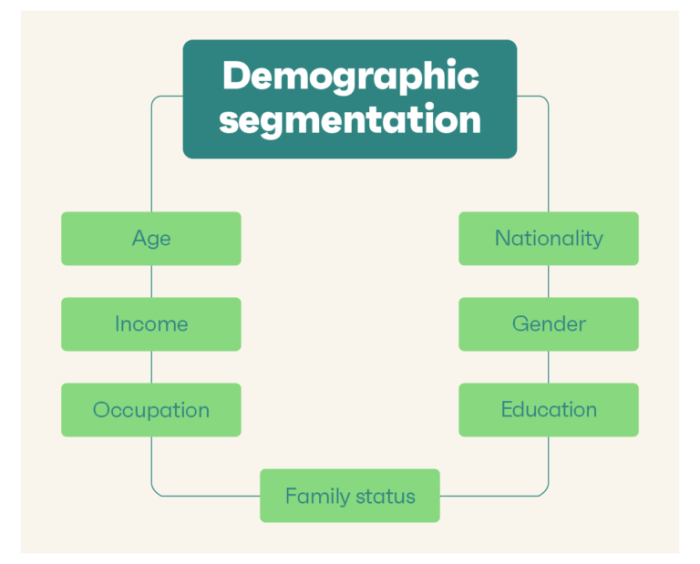In the realm of marketing and advertising, demographic segmentation holds a prominent position, serving as a cornerstone for targeted campaigns. By examining which of the following statements regarding demographic segmentation is correct, we embark on an insightful journey into the nuances and applications of this segmentation strategy.
Demographic segmentation involves dividing a market into distinct groups based on shared demographic characteristics, such as age, gender, income, education, and location. Understanding these characteristics enables marketers to tailor their messaging and strategies to specific audience segments, enhancing campaign effectiveness and ROI.
Demographic Segmentation Overview

Demographic segmentation involves dividing a market into distinct groups based on demographic characteristics such as age, gender, income, education, and occupation. It is a fundamental approach in marketing and advertising, enabling businesses to tailor their products, services, and messaging to specific consumer segments.
By understanding the unique needs and preferences of different demographic groups, companies can optimize their marketing strategies, increase conversion rates, and build stronger customer relationships.
Types of Demographic Variables
- Age:Divides consumers into different age groups, such as Generation Z, Millennials, Gen X, and Baby Boomers.
- Gender:Categorizes consumers as male or female.
- Income:Segments consumers based on their annual income or household income.
- Education:Classifies consumers based on their educational attainment, such as high school graduates, college graduates, or postgraduates.
- Occupation:Groups consumers based on their current or previous occupations.
- Marital Status:Segments consumers based on their relationship status, such as single, married, divorced, or widowed.
- Family Size:Categorizes consumers based on the number of family members in their household.
- Ethnicity:Divides consumers based on their racial or cultural background.
- Religion:Segments consumers based on their religious beliefs and practices.
- Geographic Location:Classifies consumers based on their geographic location, such as country, region, city, or neighborhood.
Benefits of Demographic Segmentation
Demographic segmentation offers several benefits, including:
- Enhanced Targeting:Allows businesses to focus their marketing efforts on specific consumer groups, increasing the relevance and effectiveness of their messaging.
- Improved Personalization:Enables companies to tailor their products and services to the unique needs and preferences of each demographic segment, resulting in increased customer satisfaction.
- Reduced Marketing Costs:By targeting specific segments, businesses can avoid wasting resources on marketing campaigns that are not relevant to their intended audience.
- Increased Sales:Effective demographic segmentation can lead to increased sales as businesses are able to offer products and services that meet the specific needs of each segment.
Challenges of Demographic Segmentation, Which of the following statements regarding demographic segmentation is correct
Demographic segmentation also presents certain challenges:
- Oversimplification:Demographic variables only provide a partial picture of consumer behavior and may not fully capture the complexity of individual preferences.
- Changing Demographics:Demographic characteristics can change over time, making it essential for businesses to continuously monitor and update their segmentation strategies.
- Data Accuracy:Demographic data may not always be accurate or up-to-date, which can affect the effectiveness of segmentation efforts.
Ethical Considerations
Demographic segmentation raises ethical considerations, such as:
- Privacy Concerns:Collecting and using personal information for segmentation purposes can raise privacy concerns.
- Discrimination:Demographic segmentation should not be used to discriminate against certain groups of consumers.
- Stereotyping:It is important to avoid making assumptions or generalizations about individuals based on their demographic characteristics.
Question Bank: Which Of The Following Statements Regarding Demographic Segmentation Is Correct
What is the primary benefit of demographic segmentation?
Demographic segmentation allows marketers to tailor their messaging and strategies to specific audience segments, enhancing campaign effectiveness and ROI.
What are some common demographic variables used in segmentation?
Common demographic variables include age, gender, income, education, location, ethnicity, and occupation.
What are the ethical considerations associated with demographic segmentation?
Demographic segmentation raises ethical concerns related to privacy, discrimination, and the potential misuse of personal data. Marketers must adhere to best practices and regulations to ensure responsible use.


